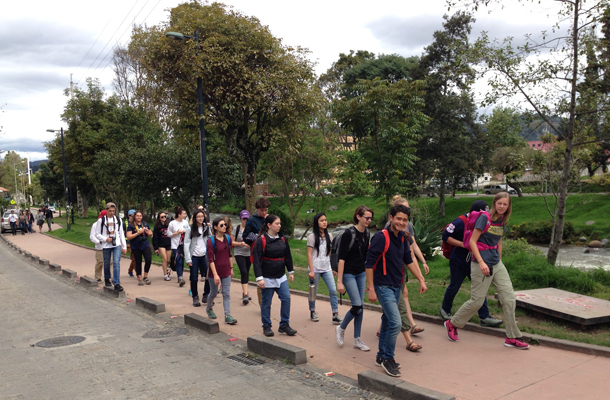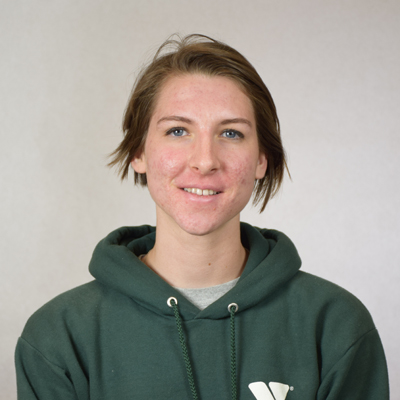Ecuador Service Trip Inspires Conservation
April 18, 2017
20 students spent spring break in Cuenca, Ecuador as part of a Global Student Embassy (GSE) service trip from April 1 through April 7. Participants traded in their electronic devices in exchange for farm tools.
GSE coordinated with several local organizations. According to junior Sierra Warshawsky, the community service offered a unique opportunity to learn about South American culture. “Students from Universidad de Cuenca came into our hostel and took us around town and taught us about their culture. Ecuador is the most diverse country in the world species-wise so they have a lot of biodiversity and they want to protect their country,” said Warshawsky.
“Down in Ecuador, we worked on multiple different projects,” said senior Hayden Wells. “We went to a school because we wanted to start a garden, there is a program in the city to start gardening clubs in schools.” The GSE group also planted trees and crops. Warshawsky said that they were even tasked with leading cows to the river one day.
Students also worked in Barabon, an area of the Azuay province of Ecuador. “We worked on many different projects with this organization [in Barbaron]. The organization is full of women who live in the community and they come together so they can help with surviving, by selling their crops and all this other kind of stuff,” said Warshawsky.
At the end of each day, the group held a debrief about what they had learned and how it impacted them. Senior Lauren Pak said that a striking aspect of the trip for her was not being able to use technology. A prerequisite of the trip was that they were not allowed to bring electronics.
“I know a few of my friends were worried at first but once we were there it was kind of nice not having to worry about technology. I didn’t even think about it, we were so focused on each other and enjoying our time,” said Pak.
Pak said that being in Cuenca was a culture shock. “Their city is not as economically wealthy as this area, obviously. They usually hang dry their clothes and they don’t exactly all have working electricity or water,” said Pak.
Pam noted that the residents seemed content. “They don’t need technology all the time and they can just appreciate their family,” she said.
Wells was especially impressed with the women of Barbaron. “Working with these women who have been doing this for 30 to 40 years, or even all their lives, getting up at 4 in the morning to plow their fields, listening to people who could speak Spanish with them was really interesting, hearing the wise words they said. I think that was really what got me the most,” he explained.
Students had the chance to listen to the local’s stories. “One lady told us that her house she has been living in for 80 years, her great grandparent’s house, the roof is collapsing and she doesn’t want to leave it because she loved the community so much and she didn’t have the money to fix it. It was really meaningful to hear that they don’t have as much as we have but they are really appreciative,” said Warshawsky.
“One of the major differences that I saw were that even though they had less than us they were really happy with what they had. They could do things with the limited amount of resources that we would need to spend money on,” said Wells.
At the end of the week, each student reflected on how they could continue to improve the environment when they returned home. Some planned to be conscientious of their showers, turn off lights to conserve energy or air dry their clothes. Personal pledges were inspired by what each had learned while volunteering within the community.
“I think everyone got their own meaning out of it,” said Warshawsky. “You get out what you put in really so for some people, they connected more to the people and they got more of a cultural experience out of it. Some people really connected to what they were doing, planting trees and crops and what they were hearing. I think it was different for everyone.”

